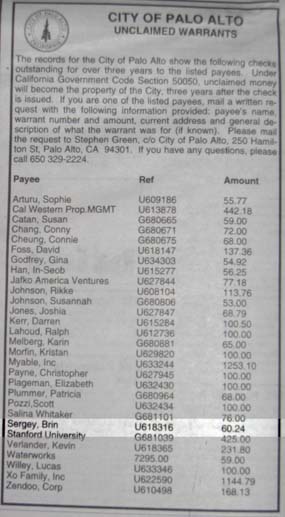There’s been an interesting discussion over on the Vancouver Company of Friends list. This week’s topic has been “Building Bold Careers”, peppered with numerous interesting comments and insights from Ian Christie, Rajesh Taneja, Stewart Marshall, and Peter Rees. As the posts have started to turn to talk of employers’ role in motivating employees and nurturing employees’ development, I started to think about something I noticed soon after joining the workforce here in Silicon Valley: the role of praise in inspiring employees.
Standard management/HR textbooks emphasize the need for managers to encourage their employees – but how many managers or employers actually make the effort? If there’s one difference I’ve noticed between US and Canadian management styles, it’s that there appears to be an increased emphasis on continual feedback and encouragement here in the US. I first noticed it in a weekly meeting with my manager – he somehow interpreted my request for additional feedback on some documentation I had prepared as a request for an impromptu performance appraisal, rather than a request for additional input for the document. I was quite surprised with the result – he proceeded to tell me how impressed he had been with my work thus far, especially considering I had prior experience in the type of position I currently held. This response was completely unexpected.
Since then, I’ve noticed there is a consistently high level of positive feedback within my company directed at all employees and from all levels of the corporate hierarchy. I’m not certain if this experience is representative of all Silicon Valley companies, US management style in general, or merely the culture at my current employer. However, given my American wife’s complaints about the lack of feedback she received from her employer while working in Canada, it makes me wonder if Canadian employers don’t adequately reward employees, not with money, but with endorphin-inducing positive feedback.
I suspect this is true, partially on the basis of my own initial reaction to the feedback I received from my US manager. At first, I didn’t accept that the praise being offered was genuine – was he kidding? Personally, I’ve never received a lot of praise at Canadian companies except upon achieving major project milestones. I’ve always been a high achiever, ambitious, and self-motivated – but sometime after joining the workforce, it appears I subconsciously learned that unless someone told me I was screwing up, I should assume I was doing a good job. I learned not to expect kudos for my good work! That wasn’t such a problem for me – but imagine the effect the lack of praise might have on an employee who needs career guidance.
So – is this just my personal experience with Canadian employers? Is my experience with my current US employer an anomaly? And what does this say about the limits of an employer to motivate and shape an employee beyond the boundaries established by the society in which they operate?
 It would appear, according to the Palo Alto Weekly, that Sergey Brin is due the whopping sum of $60.24. Well, almost. Apparently the city owes the outstanding amount to someone called “Brin Sergey”, but that’s probably a mistake on the part of someone in the city clerk’s office who hasn’t been paying much attention to the news out of Mountain View.
It would appear, according to the Palo Alto Weekly, that Sergey Brin is due the whopping sum of $60.24. Well, almost. Apparently the city owes the outstanding amount to someone called “Brin Sergey”, but that’s probably a mistake on the part of someone in the city clerk’s office who hasn’t been paying much attention to the news out of Mountain View.